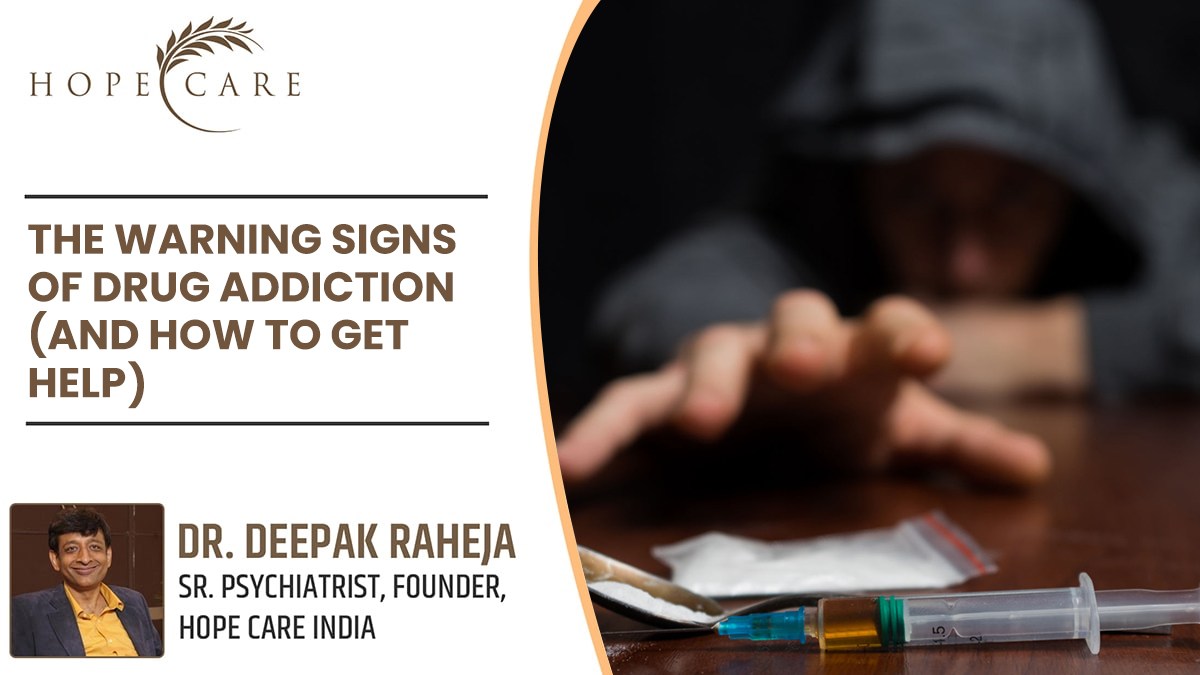How to help people with drug addiction
Without knowledge of the symptoms of addiction, it can be challenging to recognize a drug addiction or alcohol use disorder. Drug usage symptoms can be physical, behavioral, or psychological, and substance use disorders can alter how people look, act, and feel.
Not everyone who uses drugs or alcohol also struggles with substance abuse. Awareness of the warning signs and symptoms of drug addiction is the first step in seeking assistance.
The good news for worried family members and friends is that many addictive traits are simple to spot, and many different chemical addictions exhibit similar signs and symptoms. If someone is aware of the signs of addiction, they could be able to support a friend or relative who is battling this illness.

Numerous physical indications of substance abuse may be seen in someone who abuses alcohol or drugs. Some symptoms could be instantly apparent, while others can be easily concealed or manifest as slow changes.
Some physical signs of drug use are:
- Seizures Or Tremors
- Loss Of Coordination In The Body
- Extreme Lethargy
- Chemical Breath Or Clothing Odor
- Wet Or Swollen Eyes
- Weight Fluctuations Changes In Appetite And Eating Patterns
- Tension In The Jaw
- Abnormal Sleeping Habits Or Trouble Falling Asleep
- Skin Imperfections Poor Personal Hygiene
- Behavioral Indices Of Drug Abuse
Behavioral warning signs
- Decreased Attendance And Decreased Performance At Work Or School
- Unexpected Financial Difficulties; Theft Or Borrowing
- Acting Shadily Or In A Suspicious Manner
- Friends, Favorite Hangouts, And Hobbies Suddenly Alter
- Getting Into Trouble A Lot (Fights, Accidents, Illegal Activities)
Psychological warning signs
- Unexpected Personality Or Attitude Changes
- Sudden Mood Changes, Irritation, Or Explosive Anger
- Periods Of Exceptional Agitation, Hyperactivity, Or Giddiness
- Lack Of Drive; Looks Drowsy Or “Spaced Out”
- Appears Frightened, Nervous, Or Suspicious
When a loved one struggles with drug use
Here are some things you can do if you think a friend or family member has a drug problem:
Speak up. Without passing judgment, express your worries to the person and give your assistance and support. It is best to cure addiction as soon as possible. Don’t wait till your loved one reaches their lowest point!
Take care of yourself. Avoid putting oneself under challenging circumstances. Avoid becoming preoccupied with someone else’s drug use to the point where you forget about your own needs. Ensure that you have someone you can confide in and who you can rely on for assistance.
Avoid self-blame. You can help someone with a substance addiction problem and encourage them to seek treatment, but you can’t make an addict change. You can’t control your loved one’s decisions. The first step in recovery is letting the person take ownership of their behavior.
Addiction Treatment Options

Addictions to drugs, CBD and alcohol are diseases, yet they are curable. Drug and alcohol detox clinics, outpatient centers, and full-service rehab institutions like Hope Care India all provide addiction therapy.
Individual counseling and clinical care, two essential elements of most rehab programs, are a mix of therapies ideal for treating substance use disorders.
You can call Hope Care India for assistance if you or a loved one needs drug or alcohol use disorder treatment. Representatives will take your call, address your questions regarding addiction and treatment, and direct you to a facility that will match your needs.
To begin receiving comprehensive treatment for a substance use disorder, contact HOPE CARE INDIA TODAY!

Hope Care established under the guidance of Dr. Deepak Raheja, is a Psychiatric Centre of excellence that endeavors to restore hope and well-being to individuals and families afflicted by mental ill-health through comprehensive treatment and rehabilitation services. Hopecare seeks to set benchmarks in innovative programs in treatment, care, and education.

